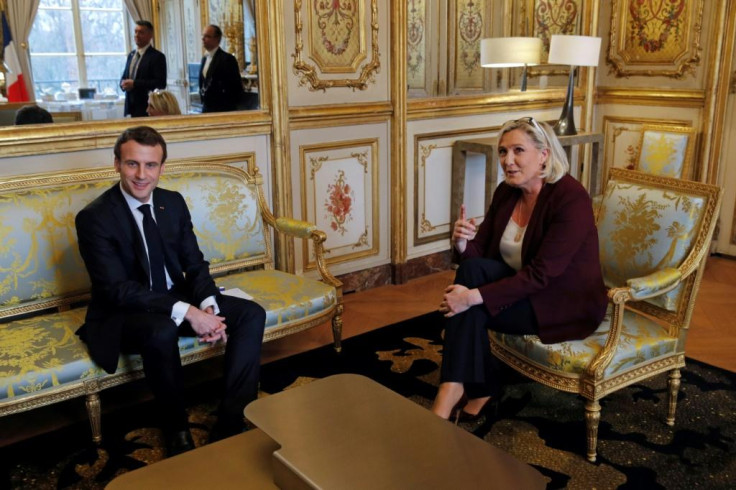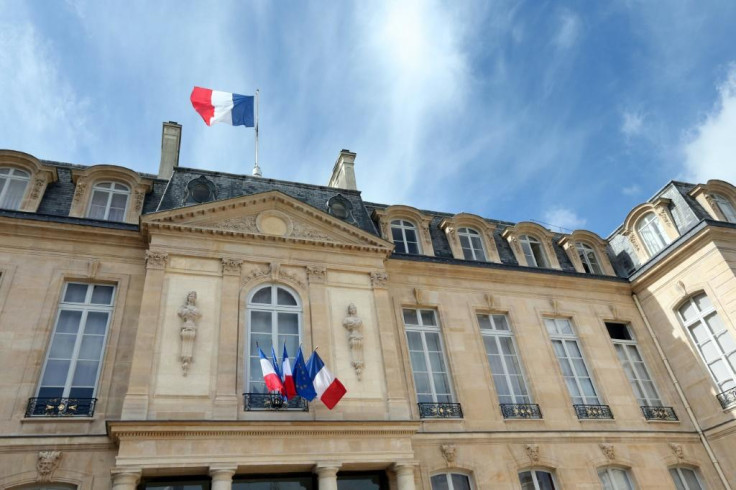France's right-wing seeks champion to fight Macron
The candidate will have to reinvigorate a party which sees itself as the guardian of the values of postwar leader Charles de Gaulle
With the clock ticking down to France's presidential elections in April, conservatives have yet to select a candidate from a crowded field of hopefuls who aim to beat the far-right to set up a final against Emmanuel Macron.
Half a dozen current or former members of the main right-wing party, The Republicans (LR), are vying to run against the centrist Macron as he seeks re-election.
But with other parties already in full campaign mode, the LR has only now decided how to choose the candidate: not through a primary as previously mooted and where anyone with right-wing views can vote, but in a congress where only party members have a voice, as late as December 4.
The candidate will have to reinvigorate a party which sees itself as the guardian of the values of postwar leader Charles de Gaulle, but remains scarred by the disastrous 2017 candidacy of former premier Francois Fillon who was felled by a graft scandal for which he was later convicted.

France's last right-wing president Nicolas Sarkozy -- who remains wildly popular among some of the LR faithful -- was himself convicted and sentenced this year for corruption and faces a verdict in a second graft trial on Thursday.
The party will also want to avoid the fate of right-wing counterparts in Germany, the CDU, whose share of the vote plummeted to historic lows in elections on Sunday in the face of a resurgent left.
"The right has an electorate, it controls the majority of large cities, departments and regions in France, but LR remains a party incredibly weakened and traumatised by the Fillon episode," political scientist Pascal Perrineau told AFP.
"Its problem is not that it does not have leaders, it is that it has many, and none of them imposes themselves naturally."

Most analysts see the two-round election process heading to a repeat of the 2017 final-stage duel between Macron and far-right leader Marine Le Pen.
But a host of uncertainty factors could see a right-wing figure survive the first round.

The congress will choose between hopefuls such as Michel Barnier, the former minister and EU commissioner who won admiration for his deft handling of Brexit negotiations, but has surprised fans with hard-right campaign vows such as a moratorium on immigration.
Another frontrunner and sole woman among the mainstream right's contenders is Valerie Pecresse, the head of the Ile-de-France region that includes Paris, who is a capable performer, but little-known internationally.
Also in the ring are longstanding MP Eric Ciotti, as well as local mayor and prominent doctor, Philippe Juvin.
But the big question mark for the right is whether heavyweight former minister and head of the northern Hauts-de-France region, Xavier Bertrand -- who polls show as the most promising conservative candidate with 14-15 percent of voter support -- will stand.
Bertrand had initially sniffed at the idea of standing on an LR ticket and made clear his opposition to a primary process.
But he is more amenable to a congress, and aides quoted in French media in recent days have made clear he could stand.
Meanwhile, a wild card of growing prominence is far-right commentator Eric Zemmour who polls credit with at least 10 percent of the vote nationwide, although he has yet to confirm his intention to stand.
A Paris Match magazine cover shot of Zemmour, who is married, in an intimate clinch with a young aide in the blue waters of the Mediterranean has only added to the media buzz around his potential candidature.
Zemmour could syphon off hard-right voters from the LR.
But he is more likely to cause problems for Le Pen by potentially splitting the far-right vote, preventing her from reaching the second round and possibly allowing an LR candidate through in her place.
Some LR figures have on occasion even floated the idea of welcoming Zemmour into their ranks, but the sharp-tongued polemicist, who is fiercely critical of Islam, upped the stakes this week by declaring that the party had "betrayed General de Gaulle".
Zemmour is "not part of our political family", responded party leader Christian Jacob.
Copyright AFP. All rights reserved.
This article is copyrighted by International Business Times, the business news leader





















